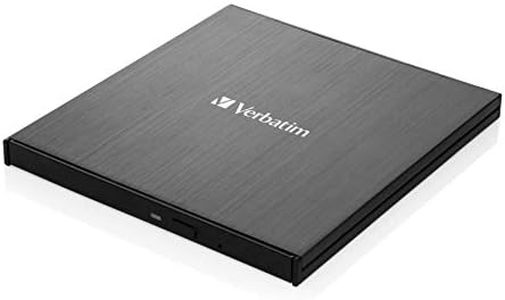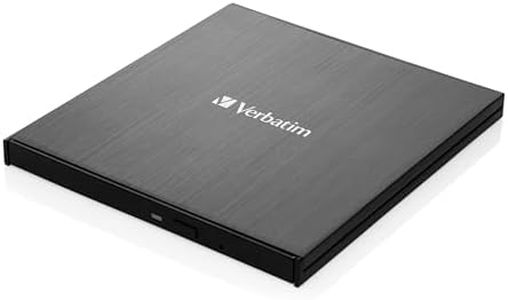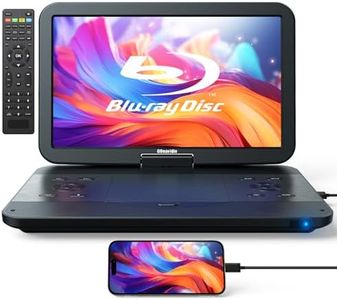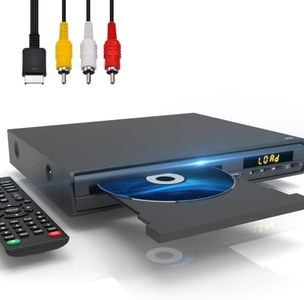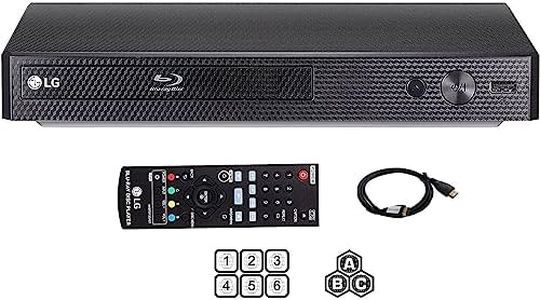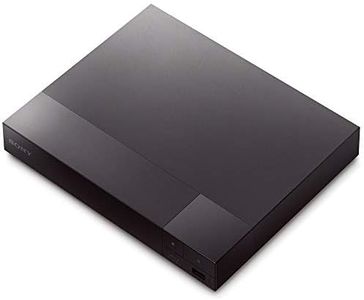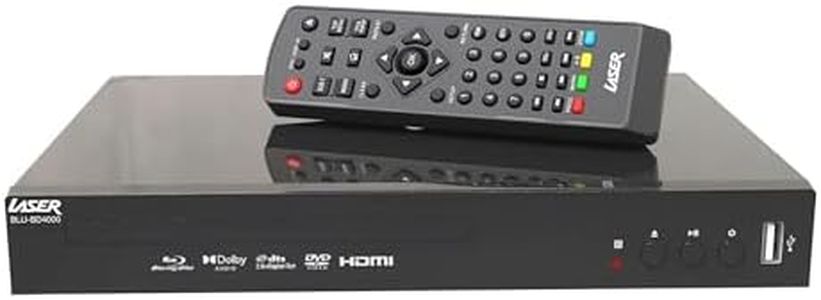We Use CookiesWe use cookies to enhance the security, performance,
functionality and for analytical and promotional activities. By continuing to browse this site you
are agreeing to our privacy policy
10 Best Dvd Blu Ray Player
From leading brands and best sellers available on the web.By clicking on a link to a third party's website, log data is shared with that third party.
Buying Guide for the Best Dvd Blu Ray Player
Selecting the right DVD or Blu-ray player can really enhance your home entertainment experience. While these devices may seem to serve a straightforward purpose—playing movies and other media—there are several features and specifications you should consider to make sure your player matches your viewing habits, connects smoothly with your equipment, and delivers the performance you'd enjoy most. Let’s break down the key aspects to help you make an informed choice.Disc Format CompatibilityDisc format compatibility refers to whether the device can play just DVDs, Blu-rays, or both, as well as any support for more specialized formats like 3D Blu-ray, SACD, or DVDs from different regions. This is important because if you have a collection of various disc types or plan to watch imported movies, you need a player that supports all the formats you own. DVD-only players are generally more basic, while Blu-ray players often play DVDs too, and higher-end models may include 4K or special audio disc compatibility. To pick the right one, think about what types of discs you already own or want to watch—if you only have DVDs, a DVD player is fine, but for high-definition movies or future flexibility, a Blu-ray player is usually a better investment.
Resolution and UpscalingResolution describes the output picture quality the player sends to your TV, with common standards being 480p for DVDs, 1080p (Full HD) for Blu-ray, and 4K for Ultra HD discs. Upscaling is a feature where the player tries to improve the quality of standard DVDs or Blu-rays when displayed on higher resolution TVs. This matters if you want the clearest possible picture on your home setup. If you have a standard HDTV, a 1080p Blu-ray player is enough, but if you have or plan to get a 4K TV, a player with 4K upscaling will make older discs look better. Always match the player's capabilities to your TV’s resolution for the best results.
Audio Output and DecodingAudio output refers to the kinds of sound connections and formats the player can handle, such as stereo, surround sound (Dolby Digital, DTS), or advanced home theater formats. Good audio output is vital for experiencing movies as intended, especially if you have a soundbar or surround sound system. Basic players offer simple outputs for TVs, while advanced ones have optical, coaxial, or HDMI connections for more detailed sound setups. If you’re only using TV speakers, basic output is sufficient, but if you enjoy immersive audio or own a home theater, make sure the player supports advanced formats and connections.
Connectivity OptionsConnectivity covers the types of ports and wireless options on the player, such as HDMI, USB, Ethernet, or built-in Wi-Fi. These options determine how you can hook up the player to your TV, stream content, or play media from external drives. HDMI is now standard and gives the best quality, while USB lets you play other media files directly. Wi-Fi or Ethernet are useful if you want to use smart features like streaming apps. Choose a player that has the connections matching your TV and any extra devices you plan to use.
Smart FeaturesSmart features mean the player can connect to the internet and offer extra functions, such as streaming from popular apps, playing music, or updating its software. This is important if you want a device that does more than just play discs, acting as a mini entertainment hub. Some players are basic and skip these, while others are more like smart media centers. If you already have a smart TV or streaming device, this may not matter, but if you’d like to access streaming services from the player itself, look for built-in smart features.
Region Code SupportRegion coding is a restriction set by disc manufacturers that can prevent some players from playing discs sold in other parts of the world. For movies and shows from different countries, or if you order discs online, you’ll need a player with region-free or multi-region support. If you only buy local discs, this isn’t important, but if you like collecting imports, make sure the player can handle them.
